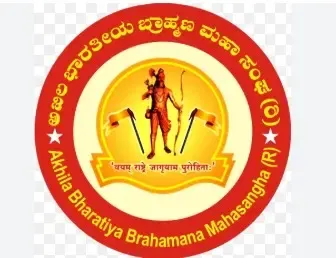Brahmin Community Appeals to Karnataka HC Over Sacred Thread Controversy

Synopsis
Key Takeaways
- Akhila Karnataka Brahmana Mahasangh files a PIL in the Karnataka High Court.
- Calls for a re-examination due to sacred thread removal.
- Instances reported across Shivamogga, Bidar, and Dharwad.
- Government promises justice for affected students.
- Karnataka BJP files a complaint with the National Human Rights Commission.
Bengaluru, April 26 (NationPress) The Akhila Karnataka Brahmana Mahasangh has initiated a Public Interest Litigation (PIL) in the Karnataka High Court, expressing disapproval over the removal of sacred threads from students during the Common Entrance Test (CET).
The organization is seeking a re-examination to be conducted.
The High Court has accepted the petition and is set to hear the PIL on June 9.
Senior counsel S. Sriranga, representing the petitioners, argued that numerous instances of sacred threads being removed from students during examinations have been reported statewide.
He asserted that this unconstitutional act has violated the rights of the students.
The incidents took place on April 16 during the CET, a state-level entrance examination managed by the Karnataka Examination Authority (KEA) for various undergraduate courses, including engineering, medical, and dental programs.
Reports emerged from Shivamogga, Bidar, and Dharwad cities where students were not allowed entry into exam centers.
The sacred threads were forcibly cut before permitting students to sit for the examination.
In Bidar, authorities denied a student entry to the CET after he refused to remove his sacred thread.
Importantly, the Congress-led government in Karnataka has expressed regret for the incidents and has ordered the suspension of the Pre-University College Principal and staff involved.
The government has also affirmed that justice will be served to the student who was barred from taking the exam.
The Karnataka BJP has lodged a complaint with the National Human Rights Commission over the sacred thread issue, where students wearing janviara/janeu were denied access to the CET.
In his complaint, R. Ashoka, Leader of the Opposition in the Karnataka Assembly, pointed out the disparity where Hindu students wearing sacred threads were denied entry, while Muslim girls wearing hijabs were allowed to participate in the examinations.
Opposition leader Ashoka stated, "I have filed a complaint with the National Human Rights Commission regarding the infringement of personal beliefs by the Karnataka government, compelling students to remove their sacred religious symbols like Janivara (Yagnopavita) and Shivadara during the CET at multiple centers statewide."
He urged the Commission to take swift and appropriate measures to protect the rights and dignity of citizens, particularly youth, whose futures should not be compromised by such unlawful and discriminatory practices.










